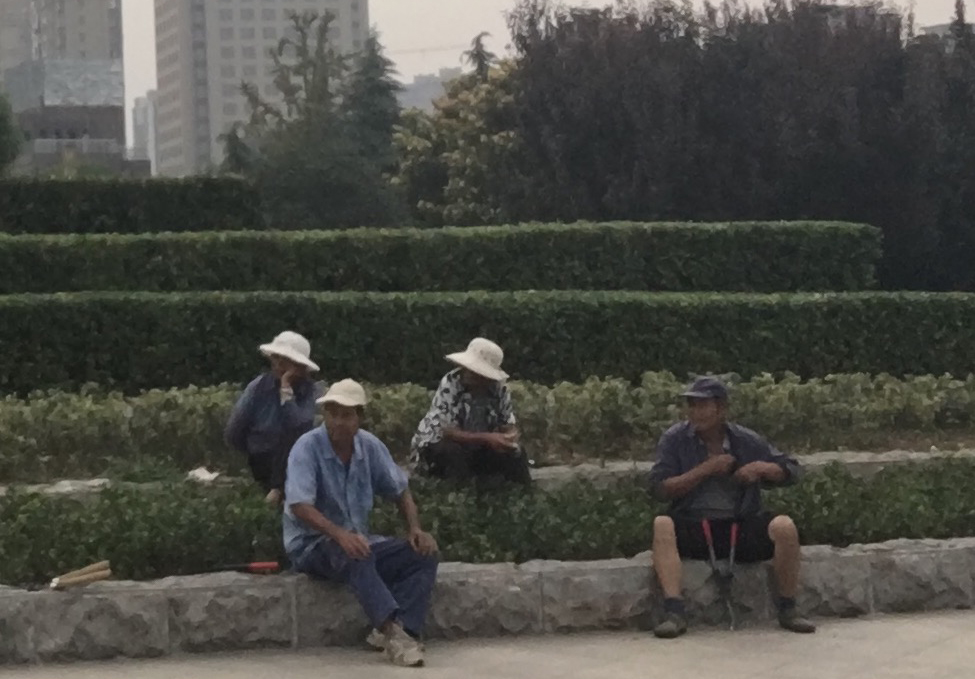Greetings from China | Day 3

 IEI Director Leslie Boney is in China, studying development strategies and sharing ideas about the varying roles universities might play in strengthening the economies of the places that surround them.
IEI Director Leslie Boney is in China, studying development strategies and sharing ideas about the varying roles universities might play in strengthening the economies of the places that surround them.
Day 3:
We traveled today from Xuzhou to Beijing on a high-speed train. As we passed small farm after small farm after small farm, I was reminded of another contrast between China and the U.S. and a challenge both countries face. In this one, North Carolina has about a twenty year head start.
A couple of years ago at the Emerging Issues Forum, we focused on what we need to do to prepare for work in a world where many of our current jobs will go away. We called it “FutureWork.”
The challenge we discussed was what all of us, and the education systems that serve us, should do as machines do more of the jobs we used to. Truck drivers will be replaced by driverless vehicles; mechanical harvesters eventually outdo even the best workers with even the delicate crops; accountants and paralegals will have trouble out-thinking machines that know every code and every case; and building maintenance crews will be replaced by robots that never ask for overtime.
As tough as that news is going to be in North Carolina and the United States, for China it will be an order of magnitude harder.
When I first came here in 2008, I remember being shocked to discover that North Carolina-based Cotton, Inc. had an office in Shanghai. When I asked the guy who ran the operation how it could possibly be profitable to send U.S. cotton to China for sale, he said it was because the Chinese were willing to pay a premium for U.S. cotton. Why? In China, cotton was still picked by hand. The workers got sweat on it. U.S. cotton was picked by machine.
In North Carolina now, we are producing more agricultural products than ever, but fewer than 2% of our population is in farming. By contrast, according to the UN’s Food and Agriculture Organization, about 500 million Chinese – more than one third of the population — are in farming (if China moved to 2% employment in agriculture, that would be 28 million). And the 500 million in farming is already down 20% from late 70’s, as farmworkers move to factories.
So they’ve moved from one highly vulnerable set of work to another.
Adding in the tens of thousands of workers you see in every city sweeping debris from the streets and sidewalks by hand with straw brooms and the number of vulnerable workers is dizzying.
Think North Carolina has a public policy challenge imagining what our economy looks like if 25% of our jobs go away in the next generation? China’s number might be 60-70% — and hundreds of millions of people might need to find new work to take care of their families.
So here’s what passes for good news. The transition North Carolina has gone through over the past 50 years, as our citizens have moved from agriculture to low-tech manufacturing jobs, to a much more machine-driven and knowledge-based economy, has been painful. But that past pain is a part of the journey toward “futurework” that we no longer have to make. In China, both the scale and the nature of the coming transition will be more challenging.
<– Greetings from China | Day 2 Greetings from China | Day 4 –>


